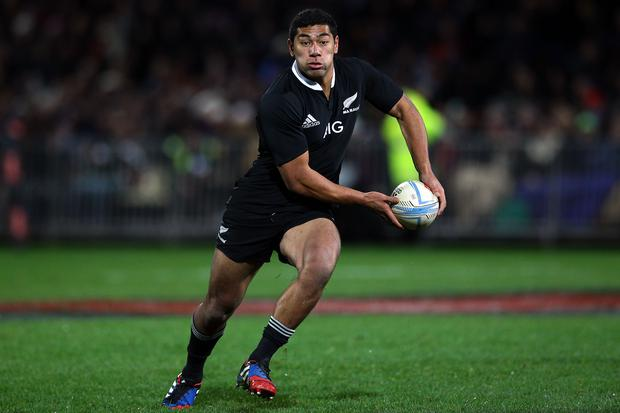All professional team sports including rugby have some common threads that run through all of them – they have their own set of governing rules which players must follow, they have organized competitions that the teams that subscribe to them take part in, and there’s an ultimate prize that every team strives to win which acts as a physical representation of their success. Professional rugby players often ply their trade for both club and country but agree that no individual or team accolade is greater than the chance to represent their country on the grandest stages the sport has to offer. Most rugby fans often wonder whether rugby players, especially those with roots in more than one country, can play for both.
Can a rugby player play for two countries? Yes. A rugby player can play for two countries. They can however not play for two countries simultaneously and have to switch from playing for one country to another. They also have to meet new eligibility requirements which include but are not limited to not having played for their previous test side for 3 years (36 months) and either being born or having a parent or grandparent who was born in the country they wish to switch to.

How the Old Rugby International Eligibility Rules Worked
Prior to the new dispensation availed under the 2021 amendments, the old rugby international eligibility rules were fluid having gone through multiple changes since before the turn of the new millennium, and largely contentious due to their overly rigid nature.
Most international eligibility rule changes can be traced to the mid-1990s and particularly after 1995 since it is then that rugby union allowed professionalism. The rule of thumb has however always been for a player to qualify to play for a country, they needed to either be a citizen of a country by birth or have a parent or grandparent who met the same criteria.
Provided a player satisfied the criteria above, they were free to switch play for one team and switch to another without a stand-down period. There were also no written rules barring players from representing countries they had no connection to prior to the 1990s which made the playing field uneven as many players would go where the best opportunities existed.
In order to curb the despicable practice, World Rugby (then the International Rugby Football Board or IRFB), set requirements that necessitated players have a residence for three years in their “new” country. Players who had already played tests for one country also had to stand down for three years. The residence rule was however reduced to one year in early 1994.
The Olympics Exception
As previously mentioned, the allowing of professionalism in 1995 introduced a whole set of problems. Players no longer switched allegiances to countries where the best career opportunities were believed to be but also where they received the best compensation.
This new trend prompted the IRB to introduce a strict rule on January 17, 1997, that prevented rugby players from playing for another country once they played for a country’s national team, official second national team (sometimes referred to as an “A” team) or a country’s rugby sevens teams against another country’s rugby sevens team.
The rule, which is commonly known as the “one country for life rule” went into effect on January 1, 2000, and also included the former three-year stand-down rule meaning that players who played for one country after January 1, 1997, would be barred from playing for another country. The period saw an arms race where countries desperately organized tests to tie key players who had previously played for other countries to their teams.
After Rugby Sevens was added to the 2016 and 2020 editions of the Olympics, the International Rugby Board or IRB (renamed so in 1998) created a temporary exception to the general “one country for life” rule in 2014 which allowed players who played for another country at a sevens tournament regarded as an Olympic event to be able to play for that country in other forms of the sport.
The three-year stand-down rule for players who wished to switch countries was also reduced to 18 months for the 2016 edition. Applications made by players who wished to play for another country were also considered individually and subsequent amendments made it so that players had to play in at least four Olympic events for their switch to another country to be considered complete.
How the New Rugby International Eligibility Rules Work
In November 2021, World Rugby (renamed so in November 2014) made a much-welcome change to its international eligibility rules after more than two decades which provided an express exception to the strict “one country for life” rule.
The long and short of the 2021 amendments are as follows:
- A play can switch from playing for one country to playing for another country but only once. This may either be a country where they were born or have citizenship.
- A three-year stand-down period is however attached and the player in question has to refrain from playing international rugby for any country during that period.
- All applications to switch countries are to be made to World Rugby, who will consider each application on its own merit.
- For a player to qualify to be “captured” or belong to a certain country’s national rugby union team, they have to have attained the age of majority (set at 18 years) on or before the date of an international test.
- For players to qualify for the exception they have to meet the criteria below
- They have to have been born in the country they wish to switch to or have a parent or grandparent who was born in that country.
- They have to have lived in the country they wish to switch to for five consecutive years or 10 cumulative years (with breaks). This provision exempts students as theirs is considered to be a temporary absence from home.
Players Who May Switch Countries for the 2023 Rugby World Cup
Below is a list of top rugby players who either qualify, have already made a switch, or are set to make a switch to different countries ahead of the 2023 Rugby World Cup.
- Charles Piutau – from New Zealand to Tonga.
- Israel Folau – already switched from Australia to Tonga.
- Julian Savea – from New Zealand to Samoa.
- Taqele Naiyaravoro – from Australia to Fiji.
- George Moala – from New Zealand to Tonga.
- Denny Solomona – from England to Samoa.
- Vaea Fifita – from New Zealand to Tonga
